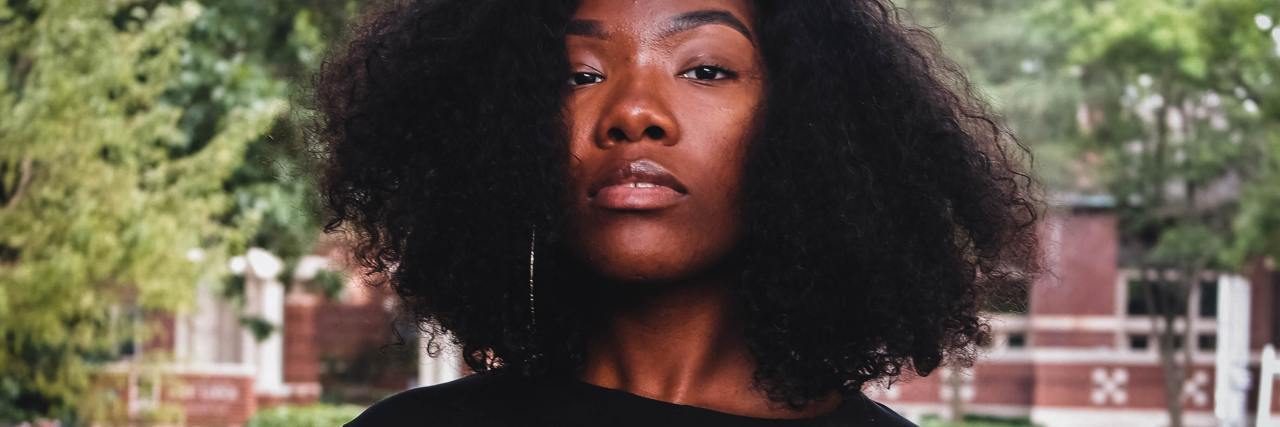To the Author Who Suggested Suicidal Black People Aren’t ‘Black Enough’
Editor's Note
If you experience suicidal thoughts, the following post could be potentially triggering. You can contact the Crisis Text Line by texting “START” to 741741.
Rheeda Walker, in “The Unapologetic Guide to Black Mental Health,” lays out her case that Black/African Americans who are considering suicide (according to her, a “Eurocentric construct”) are not connected to their Black culture and therefore can consider ending their pain through suicide. Whereas Blacks who are strongly rooted in their culture and are suffering would not consider suicide a viable option.
First Impressions
When I read the title of her book, I was excited to read it. I do a lot of public speaking about Blacks and mental health and would be able to use this information to share with my audiences. Information about Blacks and mental health is scarce, so I am always looking for some data, information and analysis for my speeches and workshops.
I ordered the sample off Amazon onto my Kindle and began reading right away. I figured if I liked it, I would order the full edition. I was so taken aback by the first couple of chapters that I put the book down and told my therapist at my next session about how disturbing it was for me.
Disturbing Analysis of Blacks Who Consider Suicide
Walker contends that the Black culture is a protective measure from hopelessness and if you do become suicidal, you are more than likely more culturally Eurocentric-identified. This offends me to no end. I have had suicidal ideation most of my life due to my bipolar disorder and traumas, and I am a proud, Black, God-fearing woman. No, I did not grow up in a predominantly Black church, community or higher education, but I grew up in a Black family. When I walk out my door, I am Black to all people who encounter me.
Walker stated “We assume that a weak or selfish person might kill himself and that a strong-minded Black person would not do such a thing. Suicide is presumably not what Black people do. Because we assume that Black people are resilient no matter the circumstances, no Black person would intend to die.”
She also stated that: “What I have found is that those who have a sense of spirituality and are connected to what it means to be Black in a positive way are less likely to consider suicide than those who do not have a positive sense of their cultural identity. I am not exactly sure why that is, but I have my suspicions that are based on my own research and that of others. I suspect that if you believe that God (and not you) is in control of life, that means that you do not have the option to take your own life.”
This is just not true. You can be resilient and believe in God’s role in your life and still be clinically depressed. You can still have forces beyond your control that lead you to consider or attempt suicide. But to say that there is some cultural “weakness” in our connections that leads us to even consider suicide is absurd.
My Reaction
I was devastated by this book and its premise. (I do, however, admit that I did not read it to its conclusion — I just could not take anymore). See, I struggle with my Black identity and my connection to the Black community. My Black parents felt that identifying with the Black community would lead to pain and suffering at the hands of white people, so they did not want me to suffer discrimination by association. So many Black people have shunned me, bullied me and outright excluded me from Black opportunities because they felt I was not Black enough. This attempt by my parents to separate me failed. I still face an enormous amount of discrimination and suffering.
My parents’ efforts did not diminish my Black identity, my ability to be connected and to value that connectedness. I must work harder to connect, but it has been well worth it.
I am clear there is no such thing as “Black enough.” Black culture is not monolithic. We are as diverse as we are many.
Walker says, “The belief that we can endure anything is both a strength and a weakness of our current culture.” This is true and points to us needing to stop being stoic in our pain and suffering. It does not indicate that we are weak in faith or culture.
Instead of comparing who is Black enough, we should be talking about our individual strengths to reach out for help. We should steel ourselves to provide support to others struggling when it is needed. We should educate ourselves so that we can be valuable allies. We should focus on our collective value in being present in each other’s lives. We should prepare to embrace our differences and strike out a path of understanding and compassion. We should be proud of our heritage that makes a diverse people.
To Walker, I say, “I am a proud, Black, God-fearing woman who is deeply rooted in her faith and heritage as it is appropriate for me, and this in no way causes me to be suicidal or not. This message that you are conveying is dangerous and counterproductive.”
I encourage you who are Mighty to see the light within you and to know that you are good enough just the way you are, suicidal or not.
Maya Lorde
Photo by De’Andre Bush on Unsplash

